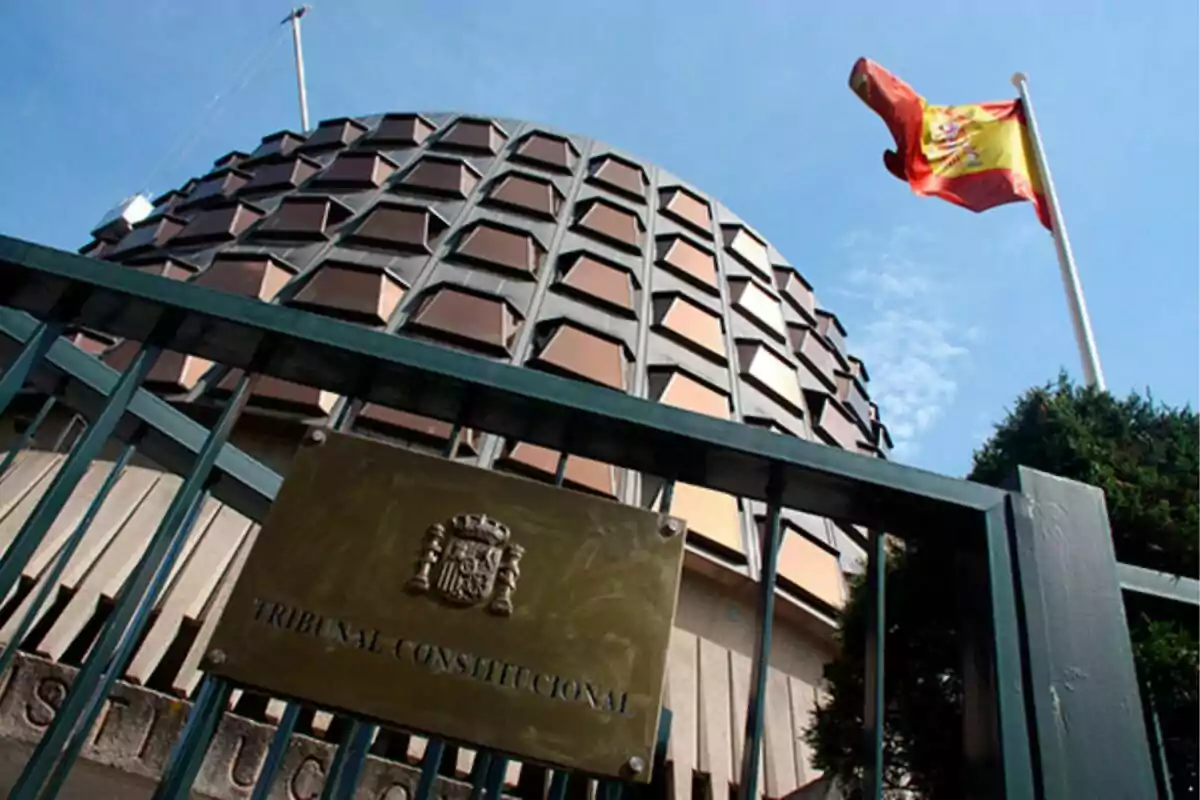
The Constitutional Court Leans Toward Striking Down Key Articles of the Trans Law
The majority of the magistrates find the measures unconstitutional and will make a decision soon
The Spanish Constitutional Court is evaluating the constitutionality of the Trans Law. The "law for the real and effective equality of trans people and for the guarantee of LGTBI rights" was approved in 2023. It allows people over 16 years old to change their name and sex in official records through an express declaration and without the need for medical reports or judicial intervention.

The debate centers on gender self-determination and its compatibility with the Constitution. The draft ruling mostly supports the law, recognizing the right of trans people to gender self-determination.
However, it proposes declaring two articles related to discrimination sanctions unconstitutional, considering them excessive and incompatible with the principle of proportionality. This decision could affect protection against discrimination for trans people.
The law has been controversial since its approval. Conservative and feminist sectors have questioned gender self-determination, arguing that it could create legal uncertainty. Meanwhile, LGTBI organizations and activists consider the law a step forward in recognizing the rights of trans people.
Major Blow to Irene Montero's Law
The well-known Trans Law, promoted by the Ministry of Equality during Irene Montero's administration, is going through its most delicate moment. The Constitutional Court has debated its content, and several key articles could be declared unconstitutional. Although there is no final resolution yet, the normative text is on hold with no clear date for its definitive review.
The proposed ruling drafted by Judge Juan Carlos Campo, favorable to the law, has been temporarily withdrawn. This decision was made after two days of deliberations that revealed a deep division among the judges.
The traditionally cohesive progressive bloc showed notable fissures. Especially around two sensitive aspects. Medical interventions in minors and the change of registered sex from the age of 16.
The most critical group points out that genital modification in children and adolescents should only be considered for strictly medical reasons. They also warn about the legal uncertainty that the free modification of sex in the Civil Registry can cause. These opinions have gained ground within the Court and have left the law in a state of uncertainty.

One of the main points of conflict revolves around minors between 12 and 16 years old. The law establishes sufficient guarantees for these young people to consent to treatments that affect their sexual identity. Most judges do not share this view and argue that consent may not be fully free or informed.
Regarding minors under 12 years old, the draft proposed medical intervention only if there was a risk to their life or physical integrity. This exception also failed to gain the necessary support within the court, further weakening the central argument of the report.
Key Decision for the Future of the Law
The conservative sector of the Court is completely against the most debated points of the norm. Its members almost entirely support the appeal filed by the People's Party and have found common ground with some progressive voices. Like Judges María Luisa Balaguer and Inmaculada Montalbán, who have also expressed doubts.
Judge Ramón Sáez, however, keeps a position contrary to the majority. He argues that the norm is compatible with the Constitution. And that the provisions allowing the registral change of sex are a way to protect the privacy and dignity of trans people.
Despite the objections, the law remains in force for the moment. No schedule has been set for a new deliberation or for drafting a definitive ruling. This lack of definition is reminiscent of other similar cases, such as the abortion law, whose resolution took more than a decade.
The final decision of the Constitutional Court will be key to determining the future of the Trans Law. A law that, although still standing, wobbles under the weight of the internal divisions of the body that must judge it.
More posts: